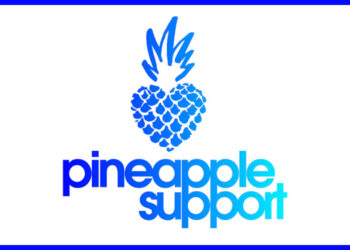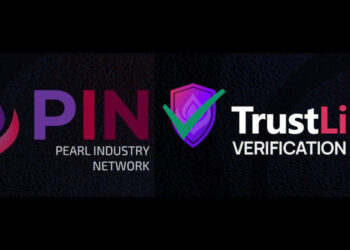 LOS ANGELES – Changing careers in midstream is always a difficult endeavor. It doesn’t matter whether you’ve spent 20 years practicing medicine, law or picking lint out of your navel in the middle of the night while sleepily ‘keeping watch’ over a warehouse full of cheap, useless crap no person in their right mind would ever attempt to steal. If one day you wake up and decide you’d like to pursue a career doing something else, you’re going to find the transition challenging.
LOS ANGELES – Changing careers in midstream is always a difficult endeavor. It doesn’t matter whether you’ve spent 20 years practicing medicine, law or picking lint out of your navel in the middle of the night while sleepily ‘keeping watch’ over a warehouse full of cheap, useless crap no person in their right mind would ever attempt to steal. If one day you wake up and decide you’d like to pursue a career doing something else, you’re going to find the transition challenging.
Of course, if you pay any attention at all to porn-related news, you know establishing a post-porn career is doubly difficult, whether you’re an exemplary teacher who thought she’d left porn in the rear-view mirror many years ago, or a recently (semi-)retired male performer who still seems to be figuring out what he wants from his post-performance career.
It’s also clear how one views her or his own porn past doesn’t make much difference to their prospects for a successful non-porn future.
In the examples linked above, on the one hand you have a woman who thoroughly disavows her “career” in adult entertainment, presenting it as the result of sexual servitude rather than an informed personal choice. On the other, there’s Danny Wylde, who sounds as though he may have been content to continue in porn, if not for the fact he had to abuse erectile dysfunction drugs to function professionally and was told he risked permanent damage to his health if he continued to do so.
Outside the adult industry (and perhaps within it, as well), what I think a lot of people don’t realize is transitioning away from porn can be difficult for those who never appeared on camera, too.
Suppose you’re a graphic artist who has spent the better part of 10 years designing exclusively for adult industry clients (or a single porn company employer) and now you want to move on to doing mainstream design work. The common practice of working under a pseudonym might protect you from being outed by a simple Google search, but it’s not going to change the fact your existing portfolio is filled with material you might not be eager to show to the nice lady interviewing applicants for the designer position at Hasbro.
Even the positions one might think are the most resilient to being “stained” by association with porn aren’t immune to the stigma attached to our industry. Do you think any of the attorneys who represent multiple adult industry clients enjoy being known as “porn lawyers”? Hell no, they don’t — not because they think their clients are a bunch of scumbags, but simply because “First Amendment specialist” or “free speech expert” or “constitutional law scholar” all sound a lot better to their peers and potential clients outside the industry than does “legal counsel of choice for smut peddlers everywhere.”
The people I know who have made the most seamless transition into non-porn work are all techs. This is not to say all the techs I know who have tried to leave the adult industry have walked right into new careers without difficulty, just that they’ve had fewer problems with the transition than the marketers, designers and management personnel who have attempted the same transition.
Unfortunately, a lot of people who take off-camera jobs in porn don’t give much thought to life after porn when they first get started, so they don’t think about ways to mitigate porn’s impact on their employability until the problem confronts them on the job-hunting trail.
As someone who has been affected by porn’s lasting professional stigma (and who was foolish enough to work under his real name for many years before ever thinking about being associated with the porn industry as a potential problem), I’ve given a lot of thought to what I would do differently, if I had it all to do again.
First, I would never have allowed my real name to be connected to my work in the porn industry. This was a massive mistake for which I have nobody else to blame.
Second, throughout my time working in the industry, I would have maintained mainstream projects on the side, even if they were things for which I earned no money for my efforts. In my view, the value of having such work to point to when being interviewed by prospective post-porn employers outweighs the uncompensated effort of doing it in the first place.
Third, to the extent possible, I would make sure my references from within the industry had good “cover stories” of their own, so when they’re eventually contacted by my prospective mainstream employers, they don’t accidentally let the smutty cat out of his filthy, semen-stained bag in the middle of recommending me to a family-friendly publication considering me as their new “health and wellness” editor.
None of this matters if you plan to make porn your professional home for life, right?
Wrong.
You don’t have to be a male performer confronted with permanent penile damage to have the unexpected kick you out of a porn job, obviously. If you’ve been a part of the industry for some years now, look at the landscape of the online adult sector around you. How many fewer affiliate programs do you see compared to 2004, 2008 or even 2012?
For some, the adult industry will provide a lifetime of income. But these are going to be the studio owners, the money men, maybe a few of the key executives at major companies that are positioned to survive even the deepest valleys of revenue decline.
The rest of us? As a practical matter, we must be ready for a post-porn career to kick up by necessity rather than by choice, no matter how much we may hate the idea.
Whether it’s something we envision as a three-year plan or a three-minute packing of our cubicle when the landlord comes to slap a lock on the office door, it’s like the song says: “Be Prepared.”












